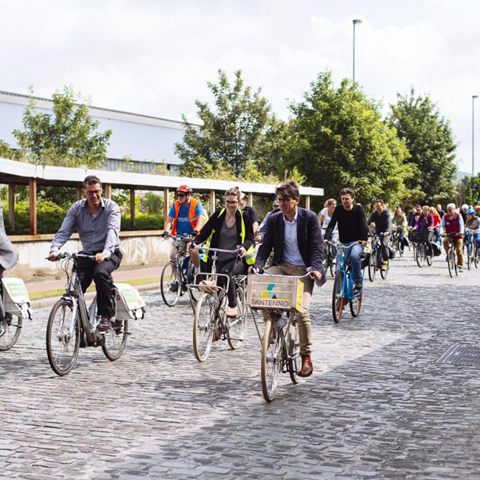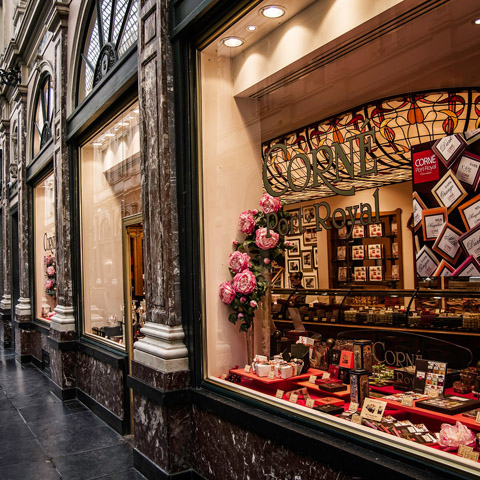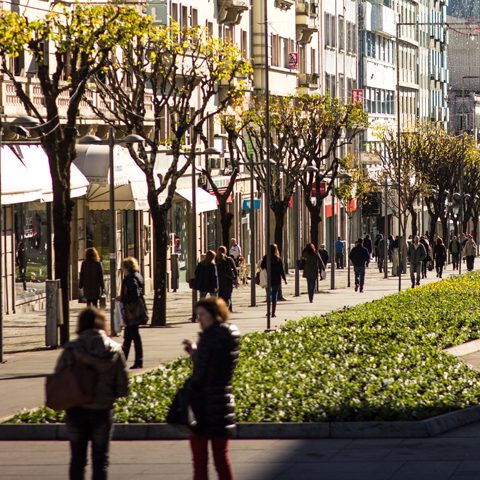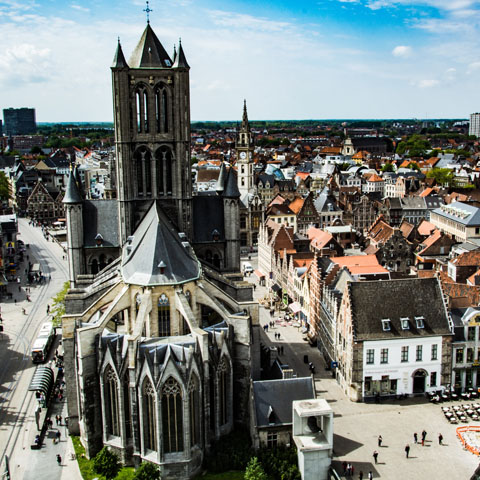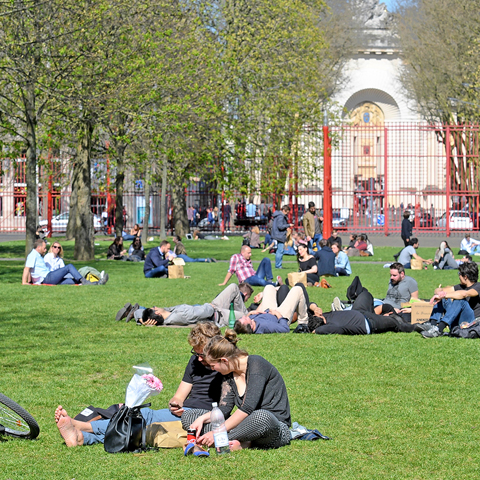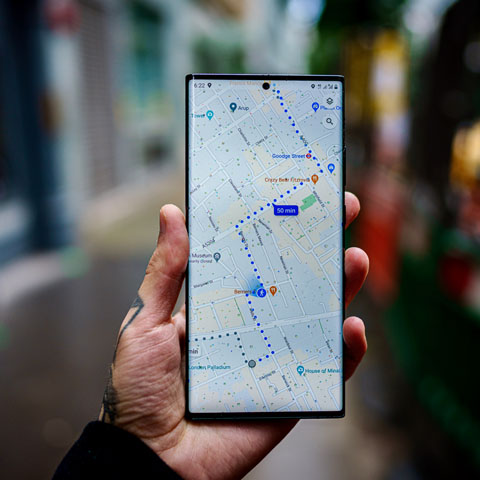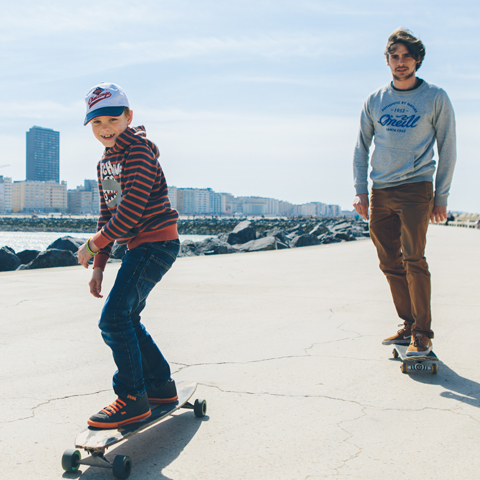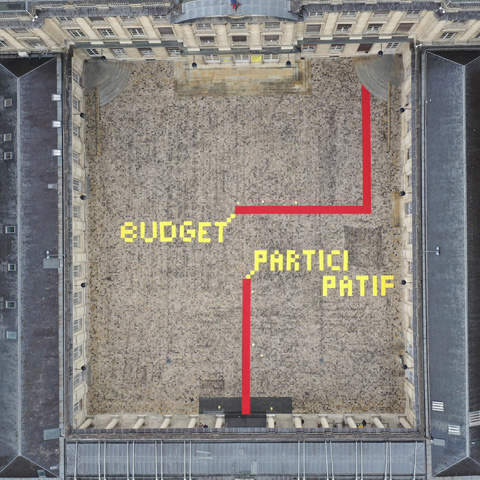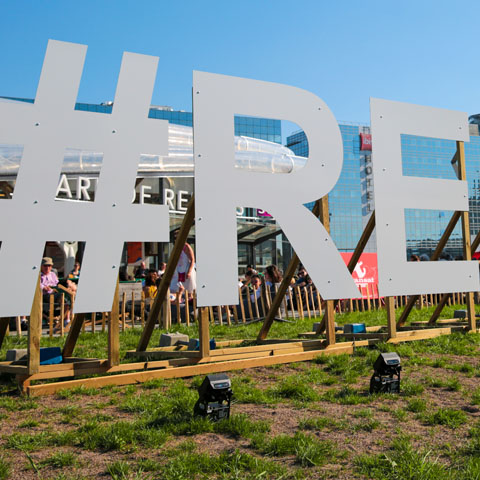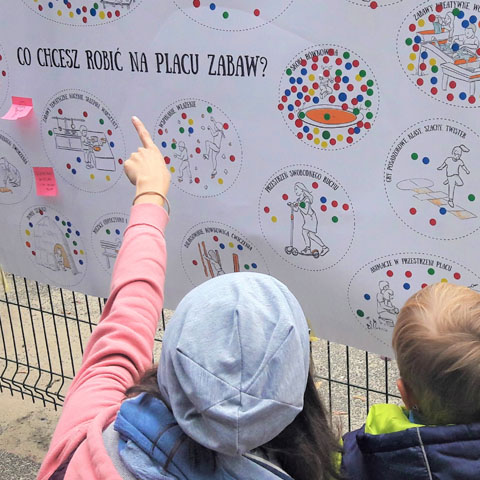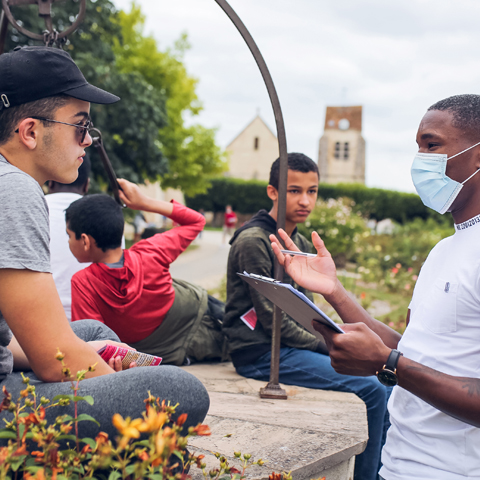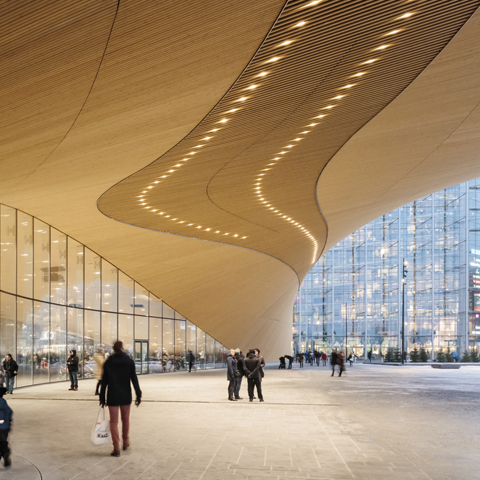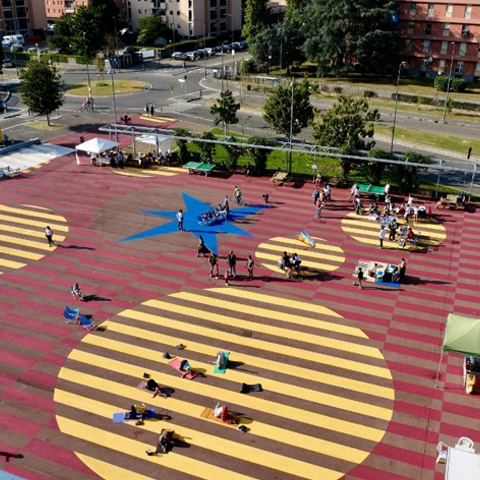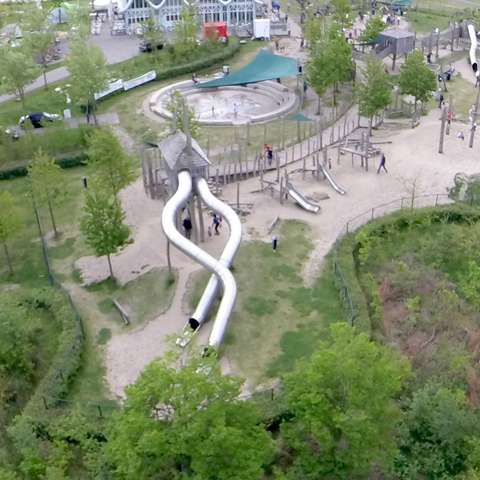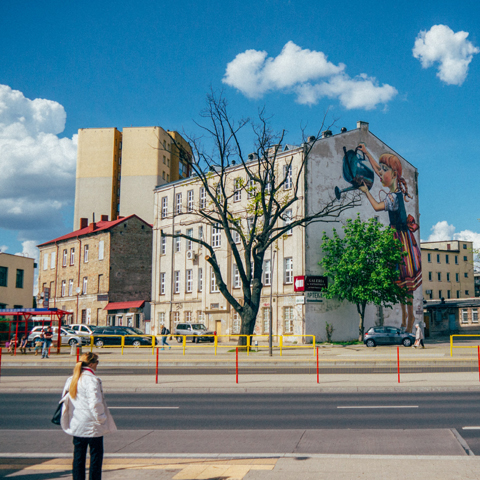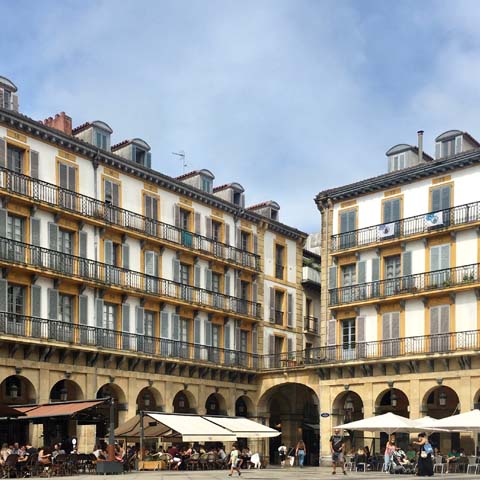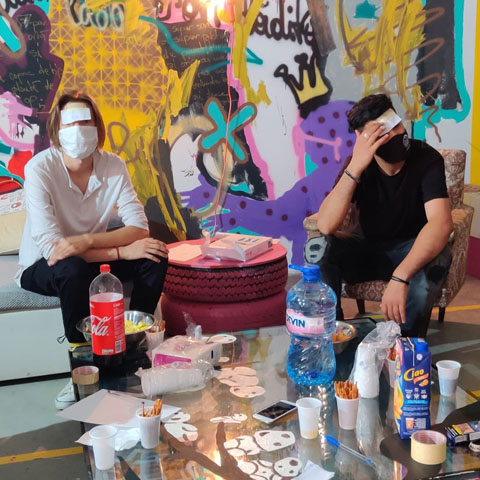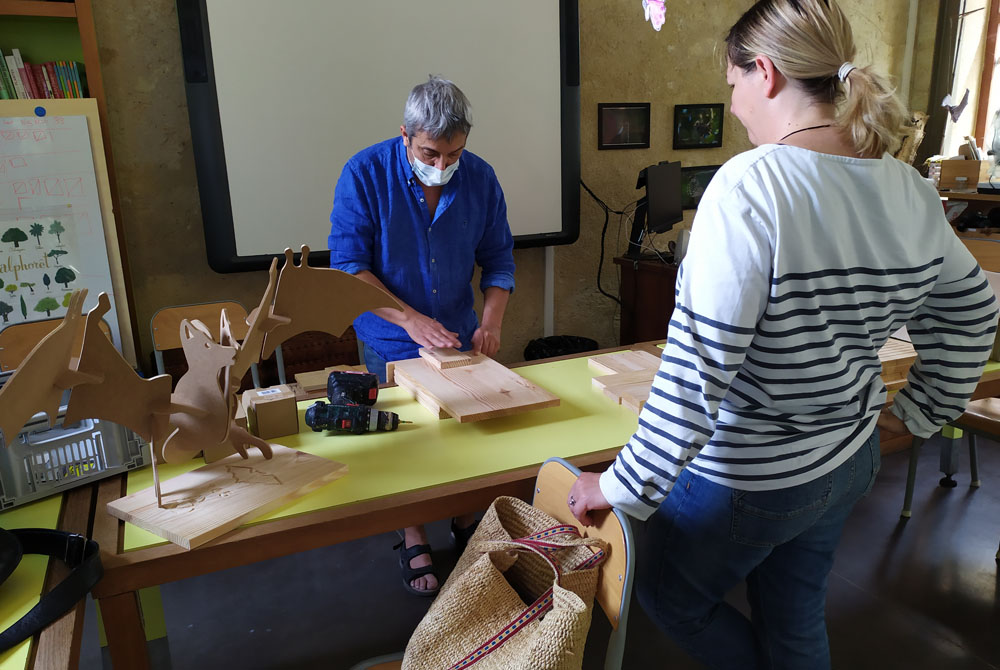€2.5 million of participatory budget are used in Bordeaux to finance projects proposed, promoted and chosen by locals.
Autumn 2018.
France is overwhelmed by the yellow vests protest expressing people’s disapproval of institutions and political representatives, and more generally, their dissatisfaction with the democratic system.
At the same time, Bordeaux’s then mayor, Alain Juppé, is pushing to implement the city’s first participatory budget. Needless to say, it struck a chord with the locals and becomes an almost immediate success.
“It allowed to answer to a form of democratic crisis,” says Maëlle Despouys, coordinator of the participatory budget in Bordeaux, “where our inhabitants had the feeling that everything was done against them, behind them or without them.”
A month after its launch in February 2019, 416 project proposals were submitted.
Let everyone know, let everyone in
Bordeaux’s participatory budget was a hit. How?
For starters, all residents could submit their ideas, without age limit or nationality requirement. This meant that foreign nationals living in Bordeaux and under 18s, who would normally not have the right to vote, were able to play a role in their town's urban project.
Then the city made sure everyone knew what was happening and that they could be part of it. Members of the districts’ committees, with 40 residents per committee, acted as spokespeople for the initiative in their respective districts, and the city organised an extensive local communication campaign.
To further encourage people to propose their ideas, the city held one workshop per district using strategic spaces such as schools and civic centres. “There were three objectives,” explains Maëlle “help participants to convey their project idea, help them visualise it, and do it in a live context, not just from behind their computer.”
Each workshop nurtured exchanges among people and, with the help of urbanists, mediators and geographers, supported those with ideas in imagining how they would work concretely, how they would integrate the existing urban space. Using drawing, illustration, computer graphics and collage, participants brought their projects to life.
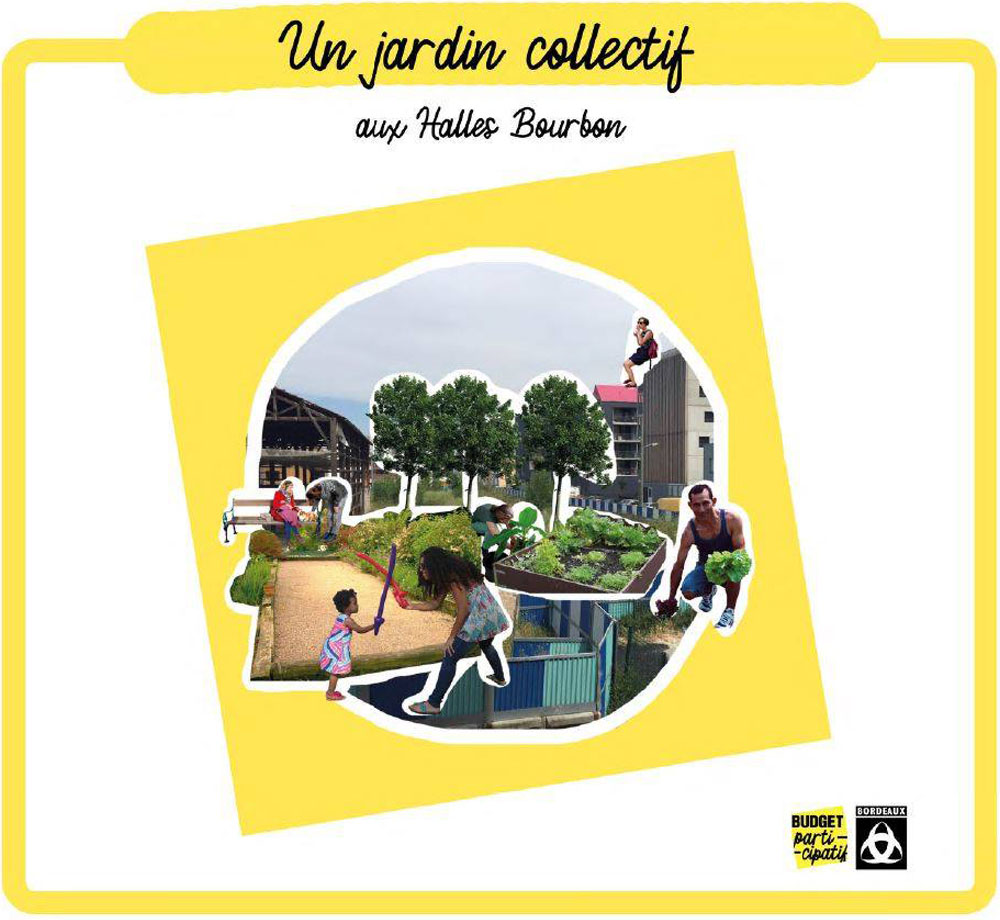 Example of visual created during the workshop.
Example of visual created during the workshop.
“Inhabitants found themselves involved and understood the whole logic behind how projects are created in the public space,” says Maëlle.
Transparency for cuts, numbers to vote
Victim of its success, the participatory budget entered its next step: the analysis phase. The onerous, but essential, task to determine which projects would be submitted to public vote was given to the Monitoring Committee. This included all members of the city council, both from the majority and opposition, residents – one per district – and the contact personnel of the city’s administrative departments. While the mix ensured both transparency and expertise, a charter composed of ten principles, and publicly available on the participatory budget platform, listed financial, technical, and legal criteria projects had to follow to be selected.
134 project proposals made the cut and were ready to be put to the vote.
The city pulled out some traditional tools, like an assembly at the city hall, an extensive communication campaign on the local press, official website and social media, and added some creative ones to its box. For example, it organised a mobile voting station that stopped in different areas of Bordeaux.
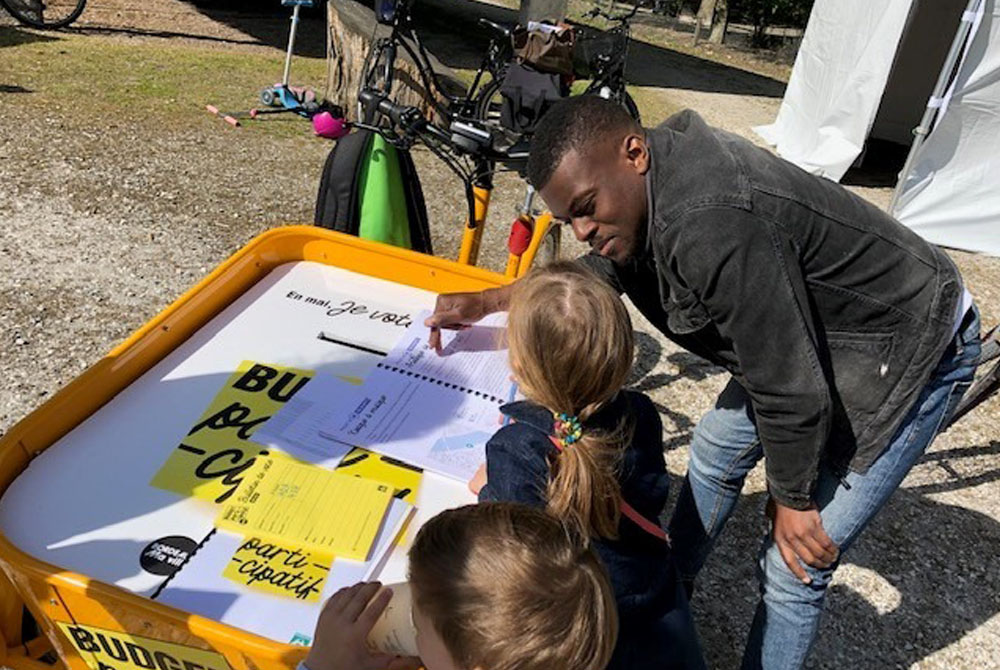 People voting at the mobile voting station.
People voting at the mobile voting station.
All residents had the opportunity to vote for their top three projects. As the theme of the call was sustainable development, proposals ranged from the construction of climbing blocks to the installation of beehives, from setting up a carpentry workshop open to everyone, to the creation of shared gardens, and more. More than 5% of Bordeaux’s population voted – 13,303 votes, of which 12,168 digital and 1,135 paper. In June 2019 the city announced the 41 winners and committed to carrying out all projects in two years, using the €2.5 million it made available for the participatory budget.
Simple, clear, recipe for success
The concept of participatory budgeting is simple, obvious, and hard to contest. After all, who would oppose the idea of the public helping to decide how to invest money in their communities? Although the specific mechanism of each participatory budget can take different forms – from advanced consultation to specific types of direct democracy – it always involves residents in the budgetary process in collaboration, and not in opposition to, politicians, public servants and experts.
“The first edition was an innovative, touching and enriching experience,” shares Maëlle. “It’s a tool that puts everyone on the same level of responsibility. Everyone, elected officials, services or residents in charge of a project had a very precise mission, and there’s no hierarchy. This tripartite dimension is essential.”
Bordeaux put energy and resources in communicating clearly and transparently throughout the process attracting participants of different ages and walks of life like children, students, young professionals, and retirees. It also used a few creative ideas, such as the mobile voting station, to guarantee the success of its initiative.
“Communication and mediation are important at every step of the project,” says Maëlle “so that residents feel lucky to have the opportunity to submit a project, to win of course, and then to follow the project until its realisation.”
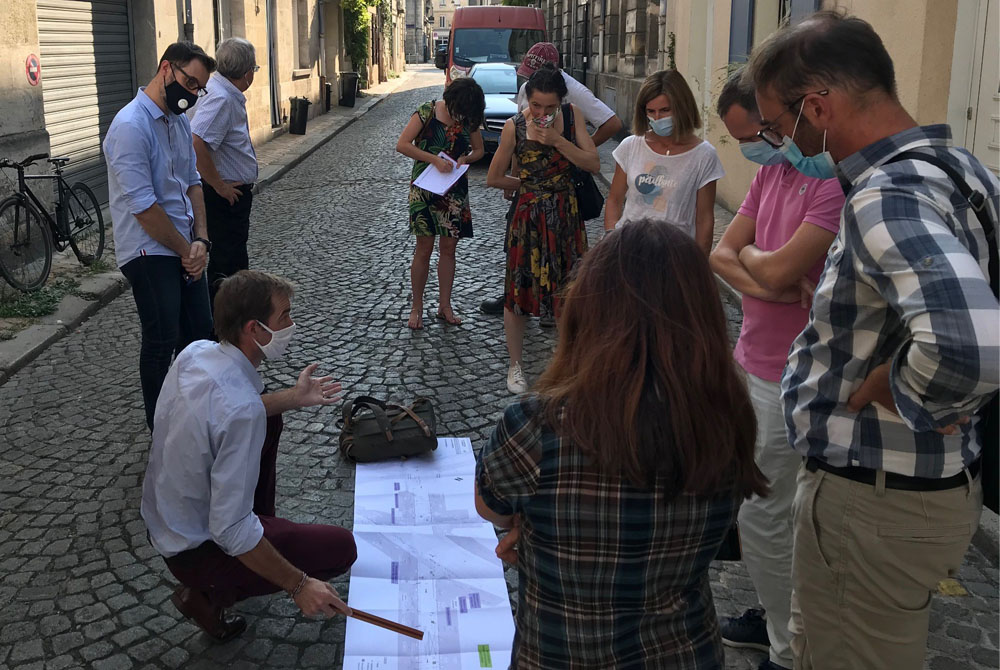 Visual feedback at the ‘street meeting’ for a greening project at the rue Cantermerle in the Chartrons / Grand Parc / Jardin Public district - ©VilledeBordeaux
Visual feedback at the ‘street meeting’ for a greening project at the rue Cantermerle in the Chartrons / Grand Parc / Jardin Public district - ©VilledeBordeaux
The online platform was a reference point, and an example of transparency, as it presented the participatory budgeting charter, its regulations, its instructions, and the composition of the monitoring committee, as well as all the proposed projects and the scores of the winning projects.
The success of the initiative has received some international recognition: it got a special mention at the 19th edition of the International Observatory on Participatory Democracy (IOPD) thanks to its focus on sustainable development, where 11,000 participatory budgets were showcased; and won the Wellbeing Cities Awards 2020 in the Nature and biodiversity category.
“What’s funny is that it’s the old administration that sent the application, and it’s the new one – elected in the summer of 2020 – that has received the prize,” adds Maëlle “it ensures a form of transmission of the initiative from an administration to the next.”
Bordeaux - a long romance with its citizens
Bordeaux’s participatory budget adventure is not the first, nor will be the last, effort to engage with its people. Consultation and citizen participation are at the heart of the municipal policy.
Since 1995, thousands of Bordeaux residents have participated in the life of their neighbourhoods alongside the municipal team. Neighbourhood councils, local councils, citizens’ councils, permanent commissions, street meetings, meetings ‘at the foot of buildings’, thematic meetings, consultations, standing committees... Residents have their choice of ways to get engaged.
